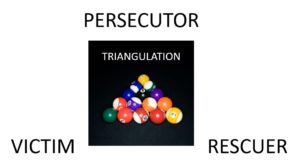[fusion_builder_container hundred_percent=”no” equal_height_columns=”no” menu_anchor=”” hide_on_mobile=”small-visibility,medium-visibility,large-visibility” class=”” id=”” background_color=”” background_image=”” background_position=”center center” background_repeat=”no-repeat” fade=”no” background_parallax=”none” parallax_speed=”0.3″ video_mp4=”” video_webm=”” video_ogv=”” video_url=”” video_aspect_ratio=”16:9″ video_loop=”yes” video_mute=”yes” overlay_color=”” video_preview_image=”” border_size=”” border_color=”” border_style=”solid” padding_top=”” padding_bottom=”” padding_left=”” padding_right=””][fusion_builder_row][fusion_builder_column type=”1_1″ layout=”1_1″ background_position=”left top” background_color=”” border_size=”” border_color=”” border_style=”solid” border_position=”all” spacing=”yes” background_image=”” background_repeat=”no-repeat” padding_top=”” padding_right=”” padding_bottom=”” padding_left=”” margin_top=”0px” margin_bottom=”0px” class=”” id=”” animation_type=”” animation_speed=”0.3″ animation_direction=”left” hide_on_mobile=”small-visibility,medium-visibility,large-visibility” center_content=”no” last=”no” min_height=”” hover_type=”none” link=””][fusion_text]What keeps us from –
Speaking directly?
Taking responsibility for our choices, actions, and words?
Confronting difficult situations?
In a word, anxiety.
We’re afraid of the pain – getting hurt, hurting; being blamed, blaming; feeling shamed, shaming, losing, causing loss. It’s about protection.Yet when we are unable to be direct, it can foster severe difficulties, particularly if there are “triangles” involved.
In your family, relationships workplace, or neighborhood – are you experiencing any of the following?
- Secrets or omissions
- Disempowerment or over-empowerment
- Distortion of information
- No mechanisms for check, balance, or correction of information
- Increased avoidance, embarrassment, procrastination, anxiety, or hostility
- Confused loyalties
- Scapegoating/blaming
If so, you may be participating in “a triangle”.
It Started Awhile Back
We learned how to participate in the drama of triangulation in childhood. With various scenes, scripts, and rehearsals, we learned our parts, oh, so very well. These dramas were produced and directed primarily by our parents and other authority figures. And we often continue to play them out again and again in our relationships – mostly unaware of what is happening. Strangely, sometimes we play different roles, depending on the drama. It’s important in any negative, reactive situation that we quickly identify where we are standing in the triangle.
Here’s Your Script, Enter Stage Left, and Play Your Part!
PERSECUTOR: (strong hostility needed, especially effective if played passive-aggressively) One seeking to be powerful who harasses or oppresses another with ill treatment. It can be played as an insecure boss, an immature parent, a wounded lover, a hostile neighbor, or a competitive classmate.
I’ll make you sorry you did that.
You asked for it.
Do as I say, not as I do.
I’ll get even, you SOB!
I didn’t want you in the first place.
RESCUER: (most impressive on a white horse) One seeking to “make it all better” by rescuing something or someone (often from maturing or taking responsibility). This part may be played as a guilt-ridden or “helicopter parent”, an enabling partner, a well-intentioned in-law, a protective secretary, a big brother or big brother institution.
When I jump in and protect or save you, you’ll depend on me, appreciate me, won’t leave me.
You’re not able – so I’ll take it from here.
Your problems/responsibilities help me forget my problems/responsibilities.
He’s bad, I’m better.
She’s bad, I’m the only one.
VICTIM: (most complex role – must have sad eyes, carefully masking anger or aggression) One resisting taking responsibility for his/her actions or situational outcome for fear of blame, embarrassment, or rejection; lacking resourcefulness. Part may be played as an ill-prepared leader, dependent spouse, ex-business partner; disgruntled employee, pampered child, or delinquent taxpayer.
There’s nothing I can do.
There’s no way out.
How did you expect me to see it coming?
I’m never appreciated or respected.
I haven’t the foggiest idea what to do.
You’re the strong, smart one.
After all I’ve done for you!
Let me explain . . .
The three roles work together to sustain the drama. But if you’re weary of the drama – there is good news.
You Can Exit – Stage Right!
- Identify your role in the continuing of the drama
- Step back, disengage· Find time-out, if needed
- Take FULL responsibility for your participation – identify your own growth point(s)
- Request, invite, construct an opportunity for dialogue among all three parties, refraining from blaming and shaming – seek mediation, if necessary
- Look at where the process and the boundaries are breaking down, and work together to construct an environment that supports all three parties, if possible -encouraging respect, resolution, and responsibility.
“The remarkable thing is that we really love our neighbor as ourselves: we do unto others as we do unto ourselves. We hate others when we hate ourselves. We are tolerant toward others when we tolerate ourselves. We forgive others when we forgive ourselves. We are prone to sacrifice others when we are ready to sacrifice ourselves.”
Eric Hoffer
[/fusion_text][/fusion_builder_column][/fusion_builder_row][/fusion_builder_container]



I was struck by the hotesny of your posting
Thank you. My commitment is to always share something that is meaningful and helpful.
Thank you. I post what I believe will be meaningful and helpful. I want to challenge people to think about something new in a different way.